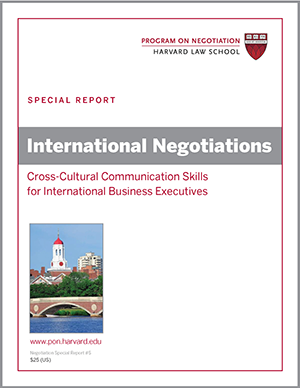
Sometimes in international negotiation, disputes are left to fester for years, even decades, until parties decide there is something to be gained from reaching dispute resolution. In an example of a cross cultural negotiation case study, the nations of Bangladesh and India seized on an opportunity to push the “restart” button on their bumpy relationship by resolving one such ongoing international conflict.
Living in No Man’s Land
For decades and perhaps even centuries, on each side of the twisting 4,000-kilometer border between India and Bangladesh, small plots of land belonging to each nation were completely surrounded by the other nation’s territory. The origins of these so-called enclaves—111 Bangladeshi, 51 Indian—were obscure. The dots of land, just 15 square miles in total, may have been bargaining chips in a 1711 international negotiation in the region, according to The Economist.
Isolated from their home countries, the enclaves had long been neglected. With neither India nor Bangladesh allowing the other to administer the enclaves, residents were trapped without hospitals, schools, courts, or travel privileges in the nation that surrounded them.
In the 1970s, the Indian and newly formed Bangladeshi governments agreed to swap their territories, such that each would acquire the enclaves within its borders. India said it would forgo compensation for an approximate net loss of about 10,000 acres. Those living in the enclaves could decide whether to move to their homeland to remain its citizens or stay put and become nationals of their new country, according to Reuters. However, the international negotiation proved unpopular and remained unratified for decades.
Dusting Off an Old Dispute – Resolution for an Old Deal
That changed back in 2015, when the prime ministers of both countries apparently recognized that resolving the international conflict would benefit not only the enclaves’ residents but also them personally. Indian prime minister Narendra Modi sought to deflect attention from domestic setbacks with the land-swap agreement. And Bangladeshi prime minister Sheikh Hasina, who had been widely criticized for authorizing violent crackdowns against her political opposition, saw an opportunity to demonstrate her legitimacy through an international negotiation with the world’s largest democracy, according to the Observer.
During a brief visit to Bangladesh’s capital, Dhaka, Modi oversaw the signing of about 20 agreements with India’s neighbor, including the land-swap deal. Simultaneously, Indian conglomerates signed draft contracts to invest about $5 billion in improving Bangladesh’s aging power sector.
Those who had been stranded in the enclaves, many for their entire lives, expressed relief that their fate had been finally settled. Most decided to stay put, accept a change in citizenship, and await the arrival of infrastructure and administration. “We didn’t have hospitals, schools, electricity—nothing,” Madhusudan Mohanto, a resident of an enclave in Bangladesh, told the Wall Street Journal. “Now we hope we’ll get our rights back.”
Indian officials said the enclave agreement signaled that their nation was equipped to tackle more difficult border disputes with China and Pakistan. The deal also allowed India, long perceived by Bangladeshi leaders and citizens as overbearing on territorial and migration issues, to build trust and goodwill as it prepared to wrap up a more difficult dispute with Bangladesh about rights to the waters of the Teesta River, which flows through both countries.
Share a story where you were able to achieve dispute resolution during conflict.
Revisiting Difficult Negotiations With Dispute Resolution
Business negotiators can absorb the following lessons about international and cross cultural negotiation and dispute resolution from the India-Bangladesh agreement:
- Never say never. Periodically revisit a mothballed international negotiation or international conflict to examine whether changed circumstances have improved the odds of resolution.
- Build goodwill. If large problems loom on the horizon, consider starting with a relatively straightforward international negotiation to gain confidence and trust.
- Engage leaders. To gain needed advocates, demonstrate to powerful leaders what’s in it for them.
Related International Negotiation Article: The Importance of Communication in International Business: Overcoming Cultural Barriers in Dealmaking Negotiations
Adapted from the article “Building Momentum through Goodwill Gestures,” first published in the Negotiation Briefings newsletter.




